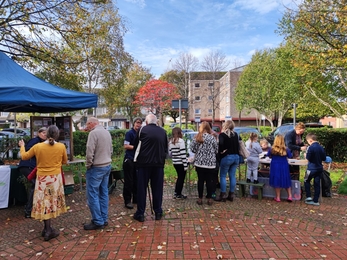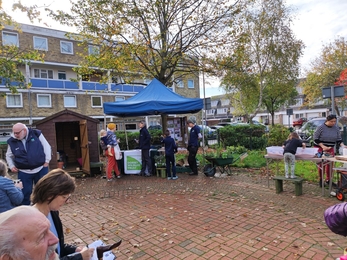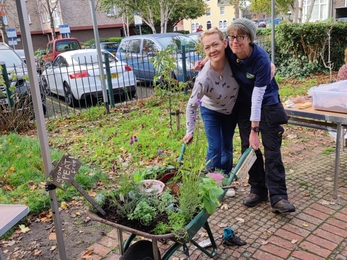Poole Town Community Garden isn’t noticeable, or a place people made the effort to visit. It doesn’t have a café, or a garden centre attached. Nor is it large enough to get lost in, although you might happen to stumble past on your way to Poole Quay. But this walled and railed garden, at present a few dormant beds waiting patiently for spring, a neat wooden shed with sides waiting for primary school children to draw on and trees standing ready to shade people sitting amongst wildflowers, is very much noticed, and appreciated by the community it sits within. A community of people from all walks of life, multi-cultural and demographically diverse. A community that could be inspired by nature, connecting with others in green spaces on their doorstep through simple activities of tending a garden, encouraging wildlife, and sharing stories from their own cultural heritage.
Nextdoor Nature has partnered with Bournemouth, Christchurch, Poole Homes after their extensive consultation with the community on the fate of the garden. A plan was hatched from this and after a few weeks of hard work the garden was tidied, trees and hedges pruned, and the first community event organised.




